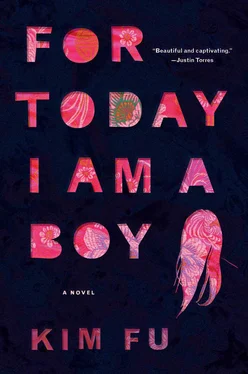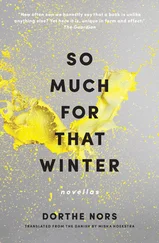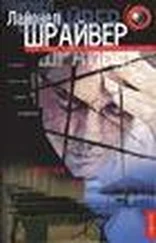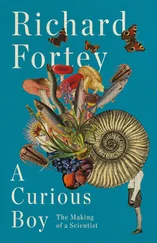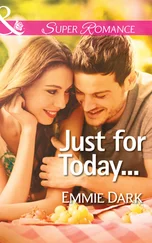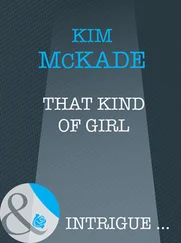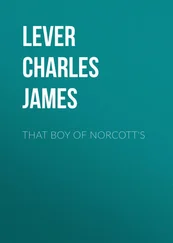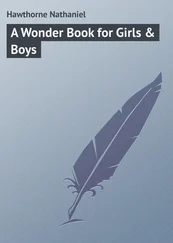“My mom found Jesus more or less the day after my dad died,” she said. “I remember, at the funeral, everyone was comparing drugs and doctors. Traditional medicine, alternative therapies. Eating roots, giving up meat. Prayer. So-and-so tried that and she still died. So-and-so tried that and she lived five years longer than the doctors said she would.” Eileen threw down the sponge and pushed her bangs away. “Everyone had so many examples, so many dead friends and relatives. And I thought, My God . At a certain point, everyone you know has cancer. I bet your dad had cancer.”
There was a bang from outside, and a yell. John’s head poked up from behind the compost bin, grinning. “It’s okay! I got it!” He waved at us.
Eileen waved back. If I had to name this thing I was born with, I would’ve called it misery. Yet there was John, with ostensibly the same thing, and of the three of us, he was the one with that smile, as though he had always been loved and always would be.
John came back inside, his clothes muddy, as if he were returning from an adventure. Eileen ruffled his hair with her wrinkled-sponge hand. They kissed. John turned to me, his hands still at her waist. “Do you guys want to open a bottle of wine?”
I felt sick of these kids. The space between us had only grown, a field strewn with words. They never had to invent anything. Not who they were, not even how their bodies fit together in the dark. They probably made the same kinds of declarations in bed as at the dinner table. This is me, this is what I’m willing to do. “I think I’ll just go home,” I said.
John stopped me with an odd, sweeping gesture, like he’d tried to punch my arm and stroke it tenderly at the same time. “Hey. Come to Tams with us tomorrow.” I started to shake my head. “What else do you have to do?”
Laundry. Dressing up alone in my apartment.
By the time I rode the bus home from John and Eileen’s, I’d been awake for twenty hours. I drifted in and out of sleep, my head lolling. I rested my elbow on the windowsill, feeling the comfort of my small, soft hand against my face.
“Hey.”
I snapped awake. There was a man sitting next to me, his legs spread open so he covered two seats. He had an open bottle in a plastic bag and wavy, shoulder-length white hair. His chin was smooth but didn’t look clean-shaven — rather, it looked like hair didn’t grow there anymore, a fallow field. “Where you from?”
“Ontario,” I said. “Near Toronto.”
“No,” he said. “Where are you really from?”
There were only a few other people on the bus. They were listening, along with the driver. “My parents are from China,” I said. Disoriented and half awake, I added, “Where are you from?”
“I’m an Indian,” he said, almost shouting. I hadn’t heard the word used that way in a long time. “But I look white, don’t I?”
He did. I nodded.
“Where in China are your parents from?”
“I don’t know.”
He snorted and drank from the bottle. Some of it ended up in his lap. “You gotta know where you’re from. It’s important.”
“They never told me.”
“They dead?”
I heard Eileen’s question echoed. “My mother’s still alive.”
The man poked me in the chest. “Then you go home, and you call your mother, and you ask her.” He pointed his thumb at himself. “Me, I’m part Ojibwa, part Mushkegowuk. From the Great Lakes.” He poked me again. “Part Ojibwa, part Mushkegowuk,” he repeated. “You remember that, now. You remember where I’m from.”
He turned to the window. It was hard to make out where we were, but you could see it was starting to snow again. I wondered if it would stick this time. He pulled the stop cord, as though the snow had told him it was time to get off.
“Remember where I came from,” he said, one last time, and stumbled toward the exit.
I’d fought against sleep on the bus, but when I welcomed it into my bed, it wouldn’t come. I sat up in the dark. I felt for the phone by my bedside. It was after four in the morning. I called my mother.
“Peter?”
“I’m sorry for calling so early.”
“I was already up. I’m making my oatmeal!”
I saw my mother, talking on her new cordless phone in one of her new tracksuits, standing over the stove, eager to greet the day. I had planned to ask her about Father’s death; it suddenly seemed cruel. “Mother? Where are you from?”
“What?”
“Where in China are you from?”
“I was born in Guangzhou.” Anticipating my next question, she added, “Your father was born in Beijing.”
I was silent. What did I learn from that? Mother didn’t push me to talk. She stayed on the line, humming distractedly. I could hear her scraping the bottom of a pot. “How are you doing?” I asked finally. “Do you want me to come visit?”
“Oh, sure. If you like.”
I felt like I knew her less and less. She seemed impatient to get off the phone. “Mother?”
“Hmm?”
“Are you… dating anyone?”
She laughed sharply. “Dating? Are you kidding? Why would I do that? Men are tyrants.”
“All of them?”
“All of them!” Her oatmeal spoon clanked against the side of the pot. “The ones my age, they were raised that way. They think that’s how you show love.” With strange glee, she added, “And their sons are going to be very disappointed.”
I slept until the afternoon. When I woke, I could already hear the Tamtams in the distance, like the boots of an advancing army. John and his friends were easy to spot: an androgynous rainbow of hooded sweatshirts near the base of the central statue in Parc du Mont-Royal, passing a joint back and forth. They regarded me with the same distant interest as they had at dinner. Blue-Pants was there again, this time wearing yellow skinny jeans and a matching yellow sweatshirt. It no longer seemed possible to ask his name.
The day before it had been fifteen below, and today it was fifteen above with a reassuring sun — a false summer. A group of circus students were stringing up a long band of red silk in the tree above us, two of them in the highest branches and two of them at the bottom. The sky bled.
“What are you guys doing for Halloween?” Yellow asked.
“Warehouse party in Parc-Ex,” Eileen said.
“Sounds cold,” Yellow said. “Dressing up?”
“Of course. What about you, Peter?”
One of the circus students, a woman, wrapped herself up in the silk tissu and self-propelled upward. She turned herself upside down, spread her legs in a V. “Nothing,” I said. “I’m too old.”
John sat bolt upright. He reminded me of a dog who hears the kibble bag being shaken in the next room. “Come with us!”
I could feel Yellow’s incredulity without looking up. The V tumbled and inverted, the sky dripping silk. “That’s okay.”
“It’ll be fun!”
I reminded myself that John was high. It was hard to tell, as he seemed no more slack and joyful than usual. “It’s too late to get a costume.”
“No way. We’ll help you. We’ll go to some thrift stores. What do you want to go as?”
“I don’t—”
John cut me off. “It’s Halloween. You can be whoever you want.”
Eileen raised her eyebrows. She gestured at Yellow to pass her the joint and gave me a heady, almost cross-eyed stare as she took her first inhale. “So, Peter. Who do you want to be?”
A snake of red silk around the woman’s ankle, up her leg, around her waist. Legs windmilling for two turns, a song of desire. I suddenly remembered the Luther, the theater from my childhood where Adele had taken us to see Sabrina. I wanted to be Adele, the way she looked silhouetted by the screen, more striking than the thirty-foot-tall Sabrina. Was Bonnie still in Paris? Had she moved on?
Читать дальше
